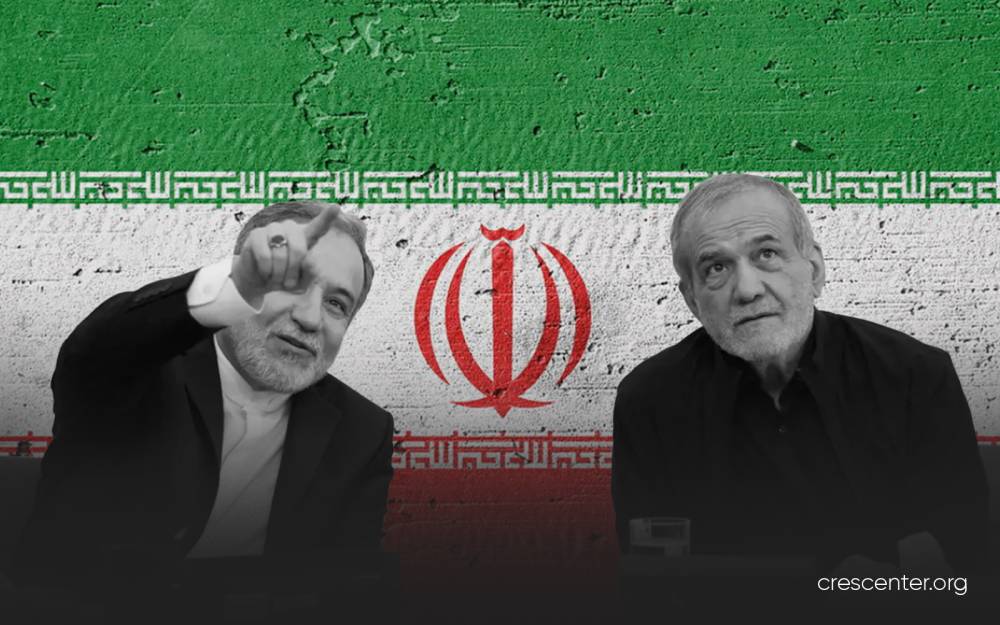Are nuclear negotiations being resumed? Can relations with the US and Europe be restored? What are the attitudes of different political circles in Iran toward nuclear talks?
In the nuclear negotiations, for an indefinite period, there is no prospect for an agreement. Nevertheless, mere negotiations may take place—particularly with the European side. From Tehran’s perspective, the United States, with its maximalist demands, is not seeking a meaningful agreement but rather absolute submission. Moreover, the issue is no longer solely about the nuclear file; it concerns the regional order and Washington’s pursuit of consolidating Israeli hegemony. Accordingly, Tehran currently regards negotiations as futile until the American side internalizes the perception that it cannot impose its maximalist demands through coercion. That said, Iran never closes the path of diplomacy—especially with Europe regarding the snapback mechanism—although there is little optimism in Tehran for reaching an agreement with Europe either.
Given the above, not only are relations unlikely to be restored in the near term, but ties with the European troika will likely become even colder. Europe, in continued alignment with the United States, seeks to escalate pressure to force Iran into capitulation. Iran, however, considers Europe’s attempt to activate the snapback not only illegal and unjustified but also a hostile measure.
Perspectives within Iran can be broadly categorized into three main groups:
First. The optimists, who believe that behind U.S. demands lies primarily the nuclear issue, and therefore, with negotiations and initiative, an agreement is still achievable.
Second. The moderates, who argue that reaching an agreement with the U.S. is impossible since Washington is not fundamentally seeking a nuclear deal. Nonetheless, they maintain that Iran’s responses and actions should be proportionate to the regional field realities and coordinated with allies such as China and Russia.
Third. The hardliners, who share the pessimism of the moderates in viewing the dispute with the West as regional and structural, but they advocate for a harsher stance in order to alter Washington’s perception of Iran’s capabilities and to establish a balance of power.
What changes have occurred in relations with countries in the region, especially neighboring states, after the war?
Iran perceives maintaining low-tension or positive relations with its neighbors as a pragmatic imperative that ought to persist even in the aftermath of the war. Nonetheless, any prospective adjustments in Tehran’s posture toward certain neighboring states would not be attributed solely to the dynamics of the twelve-day conflict, but rather, more significantly, to their broader regional conduct and strategic behavior.
What views exist within different Iranian political circles regarding the “Zangezur Corridor”? What is the source of the dilemma between President Pezeshkian and the advisors to the Supreme Leader on the issue of the “Zangezur Corridor”?
In nearly all serious policy circles within Iran, the Zangezur Corridor is perceived as a threat to national interests from three distinct angles. First, it entails the potential severance of the Iran–Armenia border, which Tehran considers a matter of national security with the highest degree of sensitivity. Second, the corridor could facilitate the entry of extra-regional powers—particularly the United States and NATO—into the South Caucasus. Third, from a geo-corridor perspective, the Middle Corridor could effectively bypass Iran, thereby diminishing its strategic connectivity.
Accordingly, Tehran seeks to manage each of these concerns proportionally, engaging with the various stakeholders involved through multiple instruments of policy. Naturally, within Iran there exists a diversity of views regarding the appropriate response to this issue. Such divergences stem from competing approaches to the broader question of how Tehran should confront perceived regional threats, reflecting an ongoing rivalry between two schools of thought on the matter.
Why was the Security Council established in Iran after the war? Can this body resolve Iran’s defense and security problems?
The wartime context imposes its own unique conditions and necessitates specific measures. Iran currently finds itself in a state of war—one for which not only is there no clear timeline for an end, but also the possibility of renewed escalation remains high. Even beyond the immediate hostilities, it is evident that Iran’s confrontation with the United States and Israel will persist in various forms, as a stable regional order has yet to materialize.
It is against this backdrop that Tehran established the Supreme Defense Council, tasked with adopting exceptional measures, centralizing decision-making, and ensuring enhanced coordination across the defense, security, and military domains. The very creation of a centralized council and new institutional structure, particularly in an environment where the risk of targeted assassinations is elevated, represents a positive step. However, the extent to which this body can effectively address Iran’s defense challenges will only become clear over time.
How are Israel’s new calls for war being received within Iranian society?
During the twelve-day war, Iranian society—contrary to the expectations of many analysts and political figures—displayed an intense reaction against Israel and even the United States, a development that took Israeli officials by surprise. This could be discerned in the statements of Prime Minister Netanyahu, his advisers, and several Israeli ministers. Today, this reaction has become even more pronounced, extending to a significant portion of the opposition, including elements previously engaged in cooperation with Israel.
Accordingly, it can be stated with confidence that Netanyahu’s militarism will once again be met with heightened resistance from the Iranian public, increasing pressure on Tehran’s leadership to deliver stronger retaliatory measures or even reconsider aspects of its nuclear policy.
That said, it seems unlikely that Israeli officials genuinely expect such rhetoric to spark unrest in Tehran or to encourage domestic support for military strikes. Rather, these narratives serve multiple purposes, and with respect to Iranian society, they primarily reflect Tel Aviv’s strategy of sustaining a wartime atmosphere within Iran’s domestic sphere and fostering gradual internal attrition.
I.Pazhuhande
The statements in this review are the authors' own opinions and may not reflect the views of CRESCENT.
